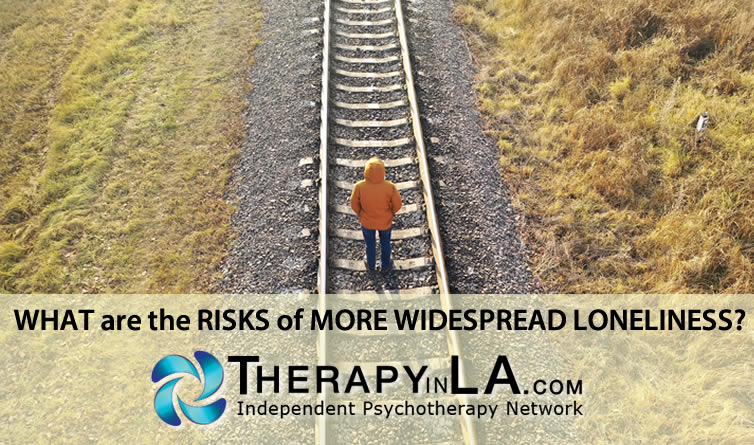WHAT are the RISKS of MORE WIDESPREAD LONELINESS?
WHAT are the RISKS of MORE WIDESPREAD LONELINESS?
By Alan M. Solomon, Ph.D.
Living alone is a higher-risk lifestyle: higher rates of less healthy behaviors, such as smoking or eating poorly. Higher rates of alcohol abuse, high blood pressure, insomnia, less functioning immune system, too (https://www.ft.com/content/c3aef690-b5a5-4f0d-9da5-2bf4c560c4f4 ).
Worldwide, in developed countries, the percentage of people who report they have friends or relatives they can call upon for help has decreased over the past 15 years. Older people are the most impacted: 53% of Americans over the age of 65 spend more than 8 hours awake each day alone. The trend line for young people is quite striking.
In the U.K., 40% of women between 16-29 years old report feeling “lonely often, always, or sometimes” compared to 22% of women over 70 years old. For men, 22% in the younger age group feel lonely, compared to 13% for those over 70. The last few years of the pandemic have certainly increased this phenomenon for all ages.
Some studies have linked social isolation with being fearful and aggressive, even violent extremism. Many of the perpetrators of mass shootings are isolated, lonely men, with a history of lacking a social network that goes back into their childhood and adolescence.
A small English town (Frome) has started programs with the national health service that include “talking cafes” and “talking benches” where mental health staff are available to chat. Taxi drivers get information on services for vulnerable customers. From the start of this plan in 2013 until 2017, admissions in the hospital emergency room decreased by 14%. In the rest of the county, admissions increased by 29%.
In my own practice over the last few years of pandemic living, the clients more impacted by loneliness seem to be adolescents and young adults, often students, as well as older women who are living alone. More frequent difficulties with depression, anxiety, sleep issues, alcohol and substance use, and isolation are very much in effect.
Alan M. Solomon, Ph.D. is a clinical psychologist in private practice in Torrance, CA. A member of the Independent Psychotherapy Network, he can be reached at 310 539-2772 or dralanms@gmail.com In-person and telehealth sessions are available.
Copyright 2023 by Alan M. Solomon, Ph.D.

